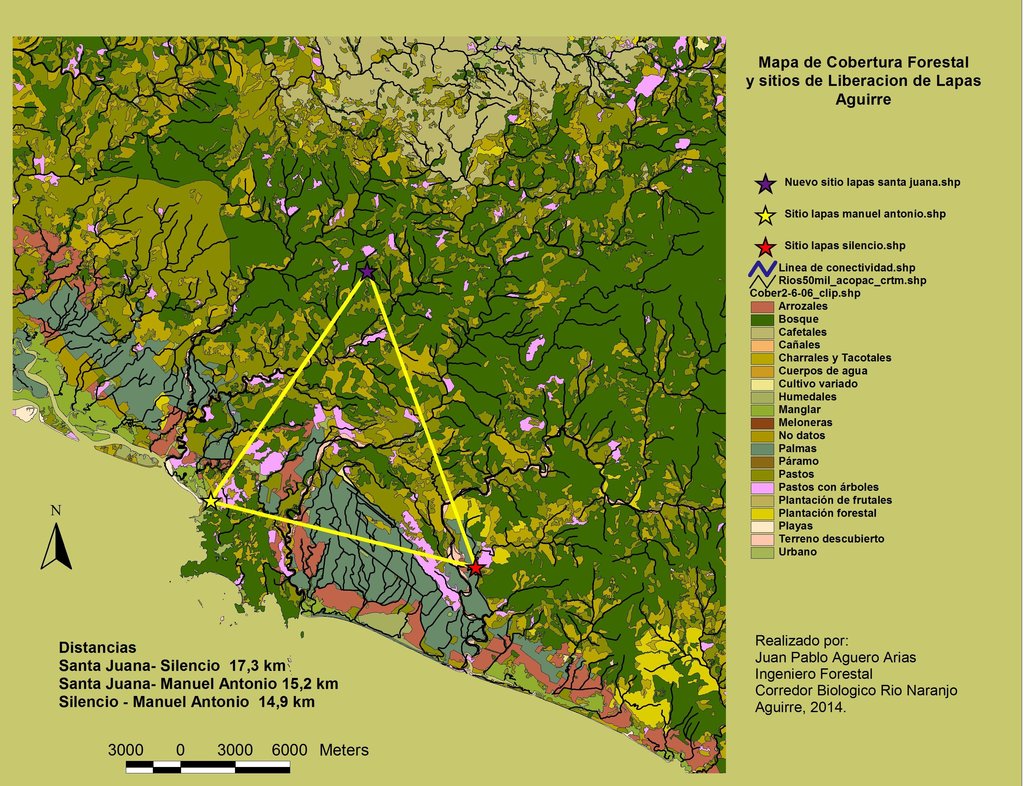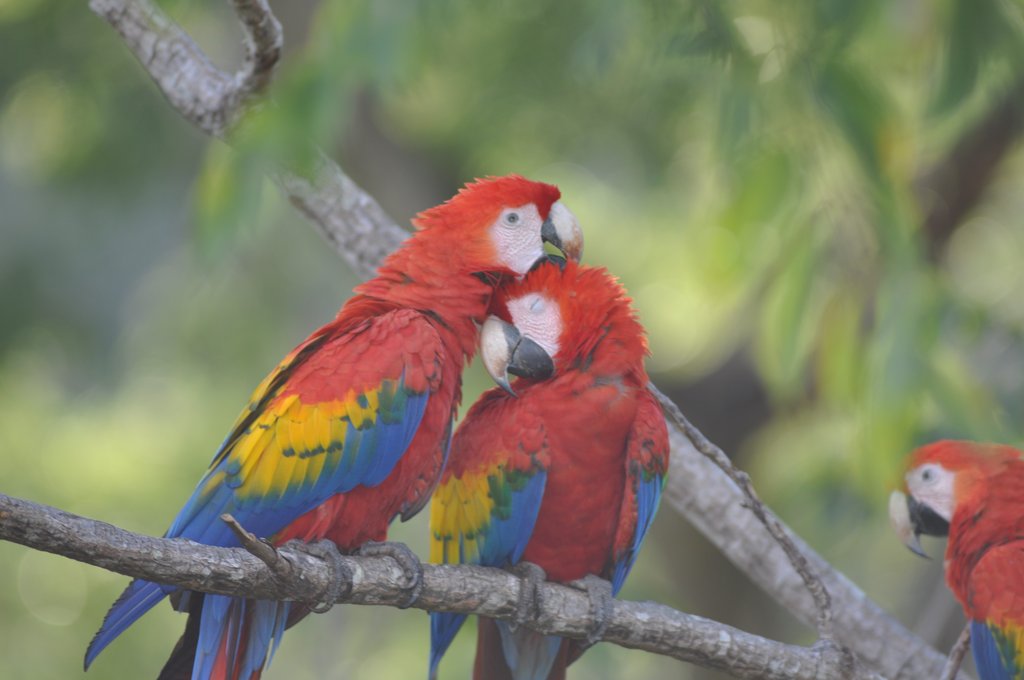By Jim Damalas | Project Director
Month away from Lapa Release Program!
Sept. 2014
After much research and lots of support from Alejandra Monge, director of the Corcovado Foundation, and Tey Arce, her counterpart from Titi Alliance, we are about ready to launch our pilot program for the re-introduction of three pairs of Scarlet Macaws (Lapas) in Santa Juana. The community has created its own committee to care for the lapas, including Allan Jimenez who will be in charge of preparing the “Jaula”, their temporary cage located next door to where he and his family live, who will look after the six new members to the community. Jimmy Mata, our staff biologist from Si Como No’s Wildlife Refuge and Nature Park in Manuel Antonio, will be responsible for the lab reports of blood samples and general behavior patterns as the Lapas become adapted to their new environment. They were raised as chicks at the facilities of Don Alesandro Puma, near the capital of San Jose. If this pilot program works, and the Lapas adapt to what was originally their natural habitat, before they were hunted for their feathers, meat, and value for collectors, Sr. Palma will have several more young pairs ready by next Spring! Based upon the study done by the National University of San Jose’s Biology department, the area has at least 17 species of native trees that the Lapas include in their natural diet. If the pilot is successful, and the reintroduction, over a 90-day period succeeds with the birds choosing to stay in the area, this will generate more natural attractions besides restoring these colorful Lapas, or Scarlet Macaws, to their natural habitat. Also the employment of two members of the village, who will have the responsibility, as well as employment, for caring and sharing their knowledge about these magnificent animals who live, paired for life, for up to 80 years!
Project reports on GlobalGiving are posted directly to globalgiving.org by Project Leaders as they are completed, generally every 3-4 months. To protect the integrity of these documents, GlobalGiving does not alter them; therefore you may find some language or formatting issues.
If you donate to this project or have donated to this project, you can receive an email when this project posts a report. You can also subscribe for reports without donating.

